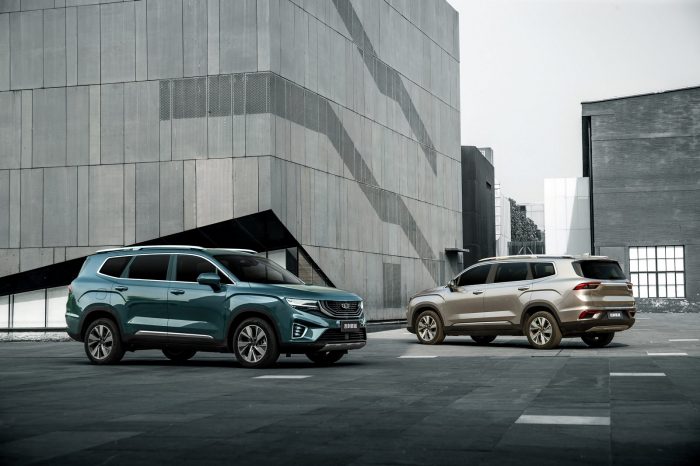Experts at the Stuttgart site are developing new, state-of-the-art production facilities as the technological template for subsequent series production. Martin Daum, Chairman of the Board of Management of Daimler Truck AG and Member of the Board of Management of Daimler AG: “We are pursuing the vision of the CO2-neutral transportation of the future. The hydrogen-based… Continue reading @Daimler: Daimler Truck AG is working intensively to prepare series production of fuel cells
Tag: Geely
China’s Geely to take over debt-laden automaker Lifan as virus stokes shake-up – sources – Reuters UK
HONG KONG/BEIJING (Reuters) – Volvo owner Geely is set to take over an automaker battered by a prolonged sales decline exacerbated by the impact of the novel coronavirus, said three people with knowledge of the matter, in an indication of how the pandemic is stoking consolidation. FILE PHOTO: A building of the Geely Auto Research… Continue reading China’s Geely to take over debt-laden automaker Lifan as virus stokes shake-up – sources – Reuters UK
Inside the industry: car makers and retailers have a love-hate relationship
There’s a saying that business without tension isn’t really business, the implication being that if you’re not fighting someone, capitalism is about to gobble you up for being too nice. Just as well, then, that, even by the standards of the most dysfunctional families, the relationship between car makers and car retailers remains fraught –… Continue reading Inside the industry: car makers and retailers have a love-hate relationship
Didi installs V2X equipment in Shanghai, begins test robotaxi service
BEIJING (Reuters) – Chinese ride-hailing giant Didi Chuxing, backed by SoftBank Group, launched a test robotaxi service in a Shanghai suburb on Saturday after installing V2X (Vehicle to Everything) hardware throughout the area. FILE PHOTO: The company logo of the Didi ride-hailing app on a car door at the IEEV New Energy Vehicles Exhibition in… Continue reading Didi installs V2X equipment in Shanghai, begins test robotaxi service
@Geely-Volvo: Volvo Car Group partners with Waymo
Go to Source
@Geely: LEVC begins fleet trials of new electric van with DPD
LEVC (London Electric Vehicle Company) has officially started the real-world testing and trial phase for VN5, its new electric van and parcel delivery firm DPD is the first company to take delivery of a converted TX prototype. Due to the similarities between TX and VN5, LEVC is deploying a fleet of converted TX-based prototypes utilising… Continue reading @Geely: LEVC begins fleet trials of new electric van with DPD
@Geely-Volvo: Volvo Cars and Plugsurfing offer Europe-wide charging service on all electric models
Go to Source
Geely launches its biggest SUV yet – Hao Yue
Chinese automaker Geely Auto officially launched its first seven-seat D-segment SUV, Hao Yue in an entirely online launch ceremony today. The seven-seat SUV marks Geely Auto’s entry into a highly competitive market segment that is currently dominated by foreign joint-venture brands in the Chinese market. Geely says it aims to challenge the competition by offering… Continue reading Geely launches its biggest SUV yet – Hao Yue
@Geely: Geely Auto Enters D-Segment with Brand’s Biggest SUV to Date
Geely’s biggest SUV to date, the Hao Yue officially released in digital launch ceremony 7-seat Hao Yue marks Geely’s Auto official entry into the D-segment SUV market New D-segment SUV challenging competitors with a suite of Geely’s latest technologies in a highly competitive package 2020 June 23, Hangzhou. Geely Auto officially launched its first seven-seat… Continue reading @Geely: Geely Auto Enters D-Segment with Brand’s Biggest SUV to Date
South Korea’s Hyundai Motor, LG Chem considering EV battery JV in Indonesia: source
SEOUL (Reuters) – South Korea’s Hyundai Motor Group and LG Chem Ltd (051910.KS) are considering establishing an electric vehicle (EV) battery cell manufacturing joint venture in Indonesia, a person familiar with the matter told Reuters on Tuesday. FILE PHOTO: An attendee takes a picture of the 2019 Hyundai Kona Electric vehicle being displayed at the… Continue reading South Korea’s Hyundai Motor, LG Chem considering EV battery JV in Indonesia: source
